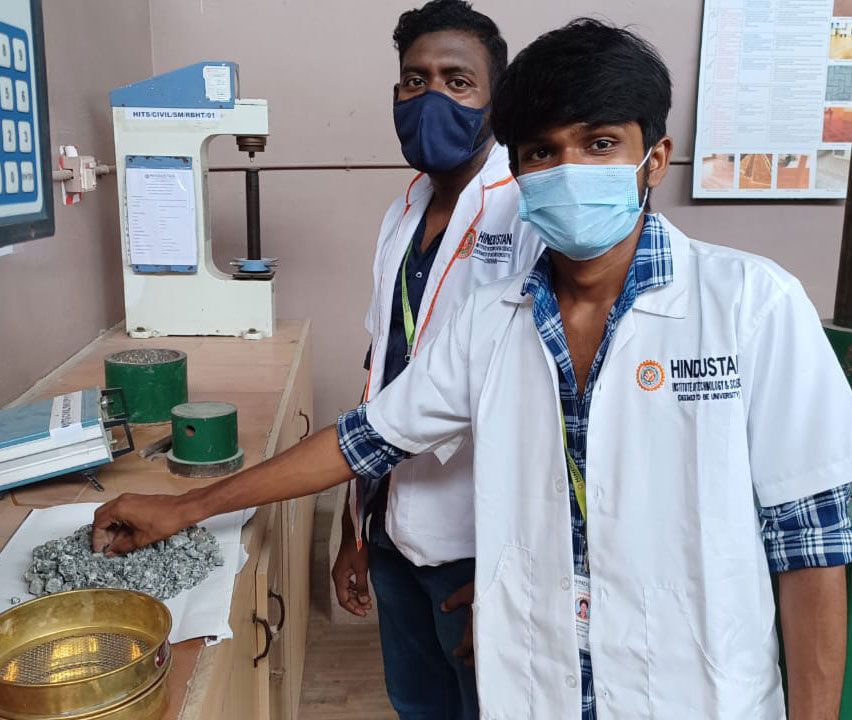Structural Engineering Laboratory
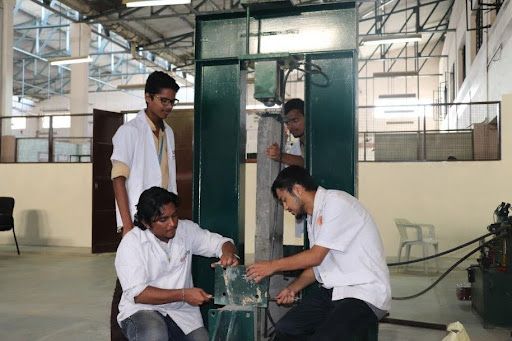
The Structural Engineering Laboratory of the Department of Civil Engineering is well-equipped for structural testing of large-scale structural elements. The laboratory is equipped with state-of-the-art equipment which is used for project works and research purposes. Major equipment available are Computerized Loading Frame (40T Capacity), Computerised Column Testing Frame (100T Capacity),Computerised Reversed Lateral Loading Frame (20 T Capacity), Durability Test Apparatus such as Rapid Chloride Penetration test and Sulphate attack. The laboratory also has NDT equipment such as Ultrasonic Pulse Velocity and Rebound Hammer. With the facilities available in the laboratory, flexural behaviour of steel and concrete beams, buckling strength of steel and concrete columns, beam-column elements subjected to cyclic loading could be investigated.
Strength Of Materials Laboratory
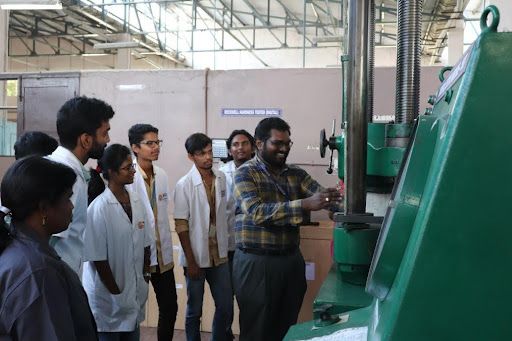
The Strength of Materials Laboratory in the Department of Civil Engineering provides an excellent foundation for both research activities as well as for the academic programs. The laboratory is equipped with Computerized Universal Testing Machine (100T capacity), Compression Testing Machine (200T capacity), Computerized Tensile Testing Machine, Impact Testing Machine, Deflection Test Apparatus, Optical Brinell Hardness tester and Digital Rockwell Hardness Tester.
Geo-technical Engineering Laboratory
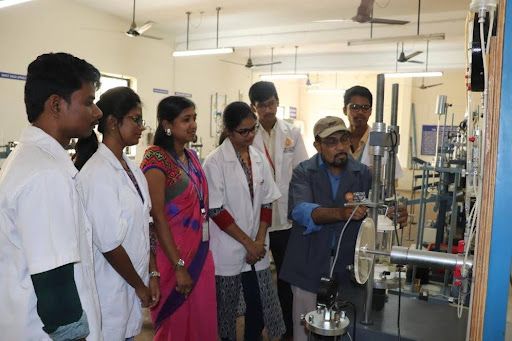
The Geotechnical Engineering Laboratory is well designed to meet the academic requirements of undergraduate programme and the Post graduate programme. The Laboratory provides a platform for testing of different types of soils.The facilities include Liquid limit apparatus, Plastic limit apparatus, Shrinkage limit apparatus, Proctor compaction device, California Bearing Ratio apparatus, Consolidation test apparatus, Direct shear apparatus, Relative density apparatus, Permeability test apparatus, Sand pouring device, Core cutter, Rapid moisture kit, Electric Oven and Swell test apparatus
Surveying Laboratory
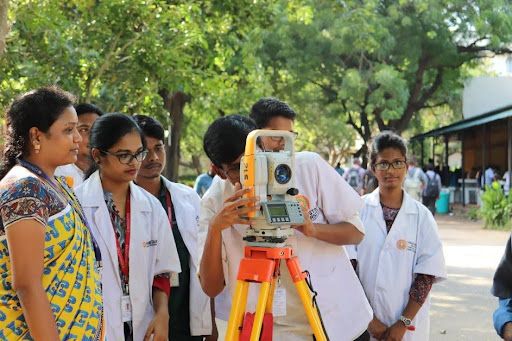
The Surveying Laboratory in the Department of Civil Engineering Provides students with hands-on experience to supplement instruction in surveying courses.The Surveying Laboratory has a wide variety of modern surveying equipment such as GPS-based surveying equipment, total stations, Digital theodolites, and automatic levels for basic instructional and research purposes. Undergraduate students use the laboratory as an integral part of their surveying coursework and obtain any topographic information that can help in their design projects such as highway design and land development.
Fluid Mechanics Laboratory
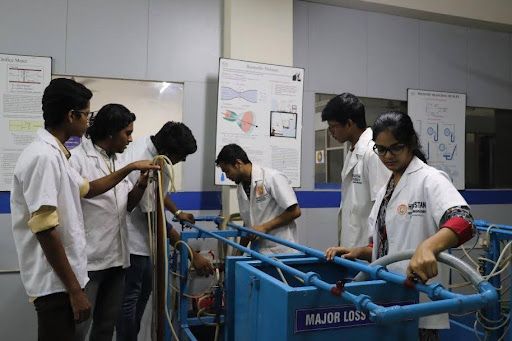
The fluid mechanics laboratory in the department of Civil Engineering is equipped with flow measuring devices such as venturimeter, orificemeter and notches, Pressure measuring devices such as peizometer and manometer. Experimental setups such as Bernoulli’s and Reynolds apparatus are available to verify the basic scientific principles. A digital flow meter is also available to measure the discharge of flow. The fluid mechanics laboratory is well designed to meet the requirements of many undergraduate programs such as Civil Engineering, Mechanical Engineering, Aeronautical Engineering and Automobile Engineering.
Environmental Engineering Laboratory
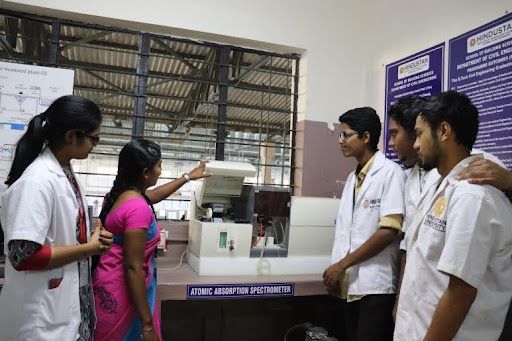
The Environmental Engineering Laboratory in the Department of Civil Engineering provides an excellent foundation for both research activities as well as the academic programs. The laboratory is equipped to test and monitor wide range of problems especially in Water, Wastewater, Noise and Air pollution. Digital pH Meter, Turbidity meter, Conductivity Meter, BOD Analyzer, COD Analyzer, UV-pectrophotometer, Respirable dust samplers, Atomic Adsorption spectrophotometer, DO Analyzer and Digital TDS Meter are the major highlights of the laboratory. In addition, the laboratory is well equipped with refrigeration, incubators, water baths, fume hoods, Weigh balances, drying ovens, a muffle furnace and other standard equipment.
Civil Design Centre
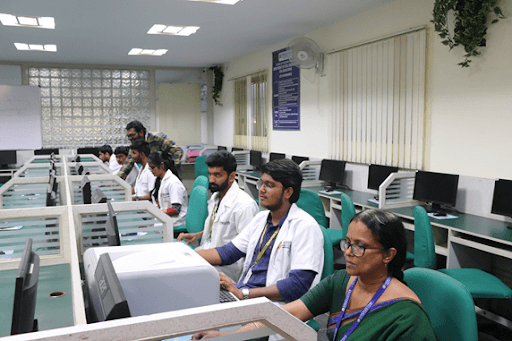
The Civil Design Centre is used by students, research scholars and staff to work on computer software related to civil engineering and consultancy. There are 54 systems out of which 15 have i5 and the rest have i3 processors. The laboratory is equipped with latest visual aids and plotting devices. The systems are loaded with STAAD.Pro (54 licenses),AutoCAD (54 licenses), ETABS, SAP 2000 and MATLAB, The laboratory courses includes Computer Aided Building Designing, Computer Aided Structural Analysis, Computer Aided Design and Drafting, Advanced Structural Engineering and Construction Software .
Construction Materials Lab
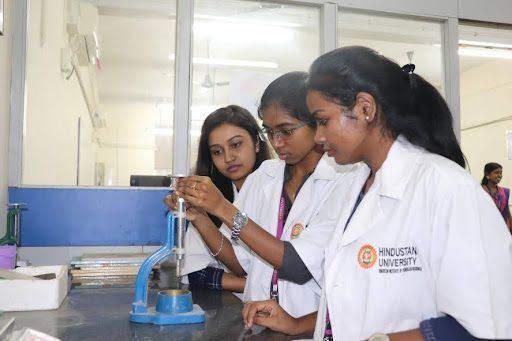
The Civil Design Centre is used by students, research scholars and staff to work on computer software related to civil engineering and consultancy. There are 54 systems out of which 15 have i5 and the rest have i3 processors. The laboratory is equipped with latest visual aids and plotting devices. The systems are loaded with STAAD.Pro (54 licenses),AutoCAD (54 licenses), ETABS, SAP 2000 and MATLAB, The laboratory courses includes Computer Aided Building Designing, Computer Aided Structural Analysis, Computer Aided Design and Drafting, Advanced Structural Engineering and Construction Software.
Transportation Lab
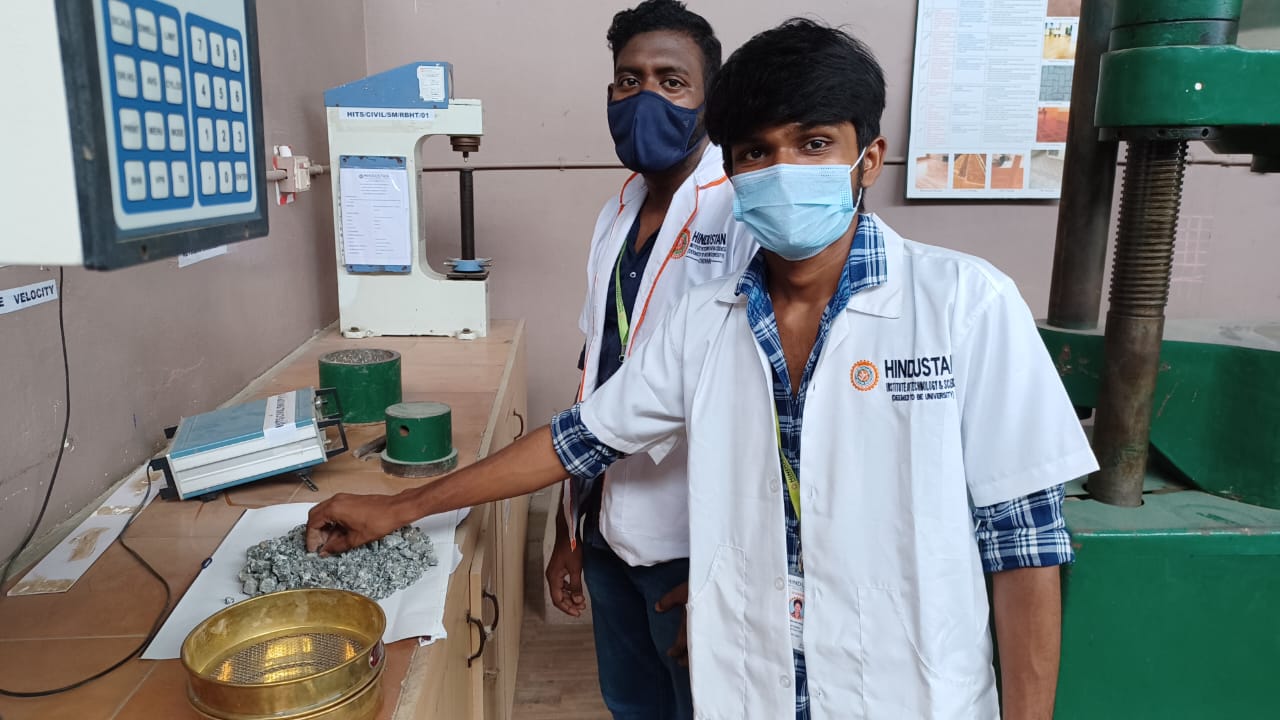
The Transportation Engineering Lab has the equipment required to conduct all standardized tests to assess the quality of highway materials, pavement evaluation, and traffic engineering studies. Experiments are conducted in the pre and post-construction phases of highways. The Transportation Engineering Lab does quality assurance and quality control tests for the roads. Traffic engineering surveys are also conducted in the lab, and students learn to conduct spot speed studies, volume counts, and conflict studies for preparing road improvement plans to enhance road safety. The lab is used for collaborative research in traffic engineering and transport planning.
Engineering Immersion Laboratory
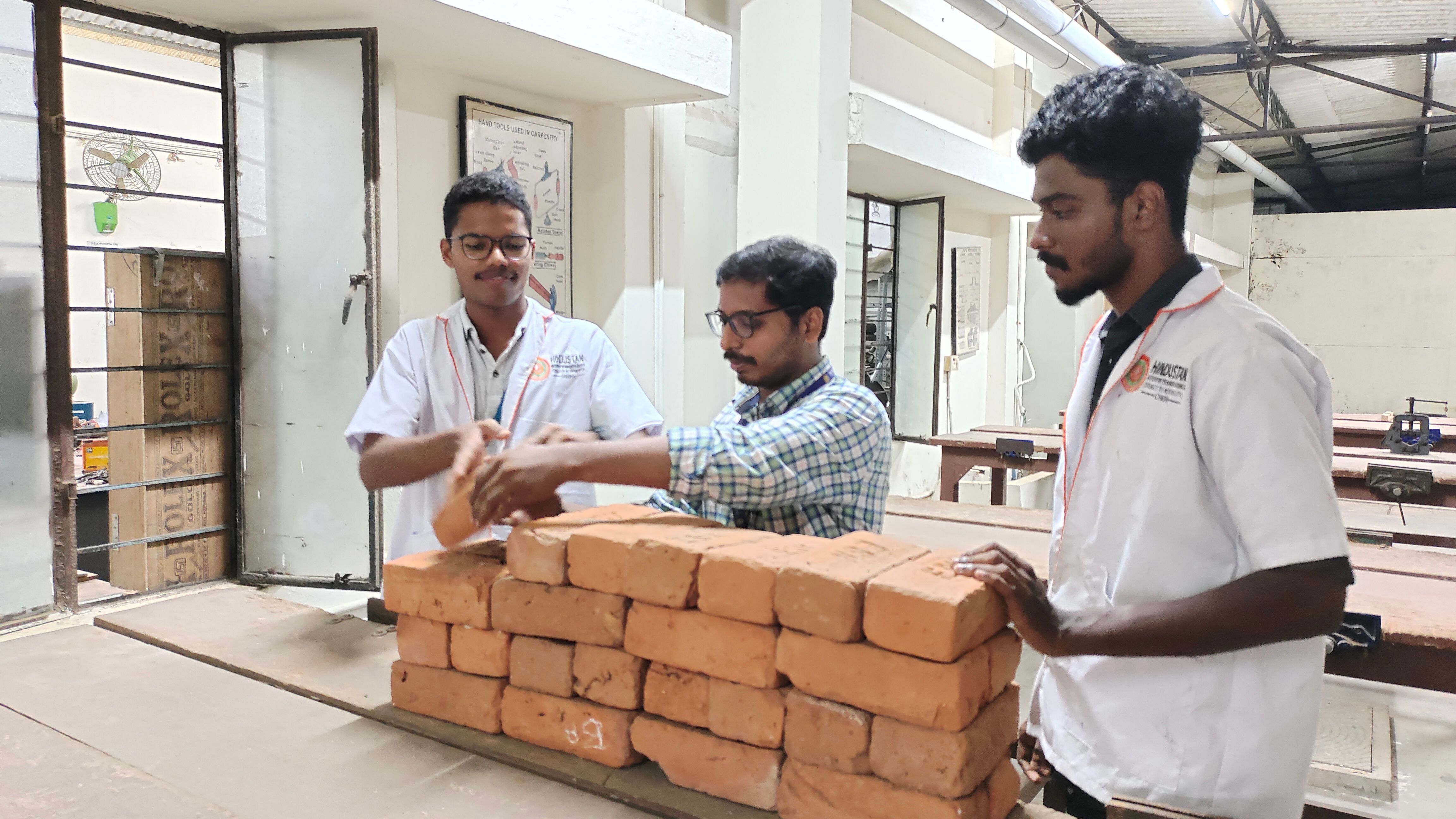
The Engineering Immersion Laboratory designed to provide hands-on, immersive learning experiences in engineering. The labs often focus on practical, real-world applications of engineering principles and may include a variety of tools, technologies, and resources to support student learning, research, and innovation. Students engage in projects that require them to apply engineering theories and principles. This could include building prototypes, conducting experiments, and solving complex problems. The lab encourage collaboration among students, faculty, and industry partners. Team-based projects are common, and the space is usually designed to facilitate group work.
